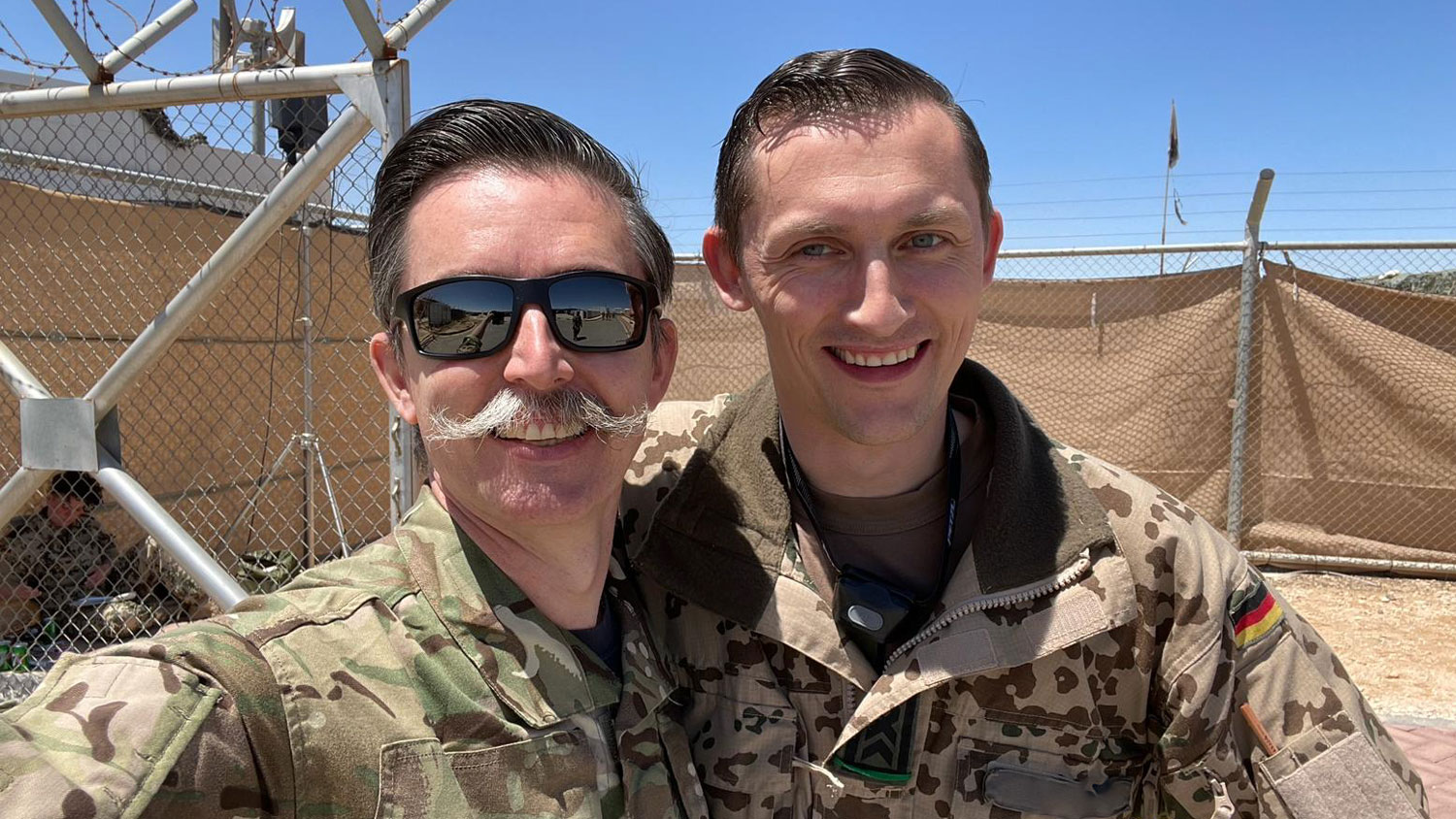
A true alliance: The RAF pilot who rescued two German soldiers in the face of the Taliban

For 75 years, Nato members have protected each other through the principle of collective defence, promoting solidarity and camaraderie.
In the new BFBS Radio documentary Nato 75 - An Alliance Rescue Amy Casey speaks to the Royal Air Force and Luftwaffe personnel who were involved in the courageous rescue of two German soldiers who were left at Kabul airport during the 2021 evacuation.
One of those rescued was a Heer Master Sergeant known only as Stephan, who explained what a lasting emotional impact the incident had had on him.
"You remember 'Whoa, I was the last German in Kabul international airport'," he said.
"Then the feelings come. You cry. You get tears in your eyes. You take your wife to you, hold her in your arms."
In August 2021, the city of Kabul was in chaos when after 20 years of military operations in Afghanistan Nato forces pulled out.
The Afghan government and military had fallen to the Taliban and on 14 August, US President Joe Biden announced all US troops were to be withdrawn by 11 September 2021.
After the Taliban had taken control of all border crossings, Kabul airport was the only secure route out of the country.
Nato troops deployed to the airport to secure the airlifts of their nationals and embassy staff, along with Afghan citizens who had worked with coalition forces.
The German government announced it was sending three A400M Atlas aircraft to the airport with a contingent of paratroopers.
Flight Lieutenant Mark Jenkins, a British exchange officer in Germany and a medevac pilot, spoke of the events that led to the daring rescue, saying: "For my crew it was business as normal. We fly, we hold, we fly home again, job done."
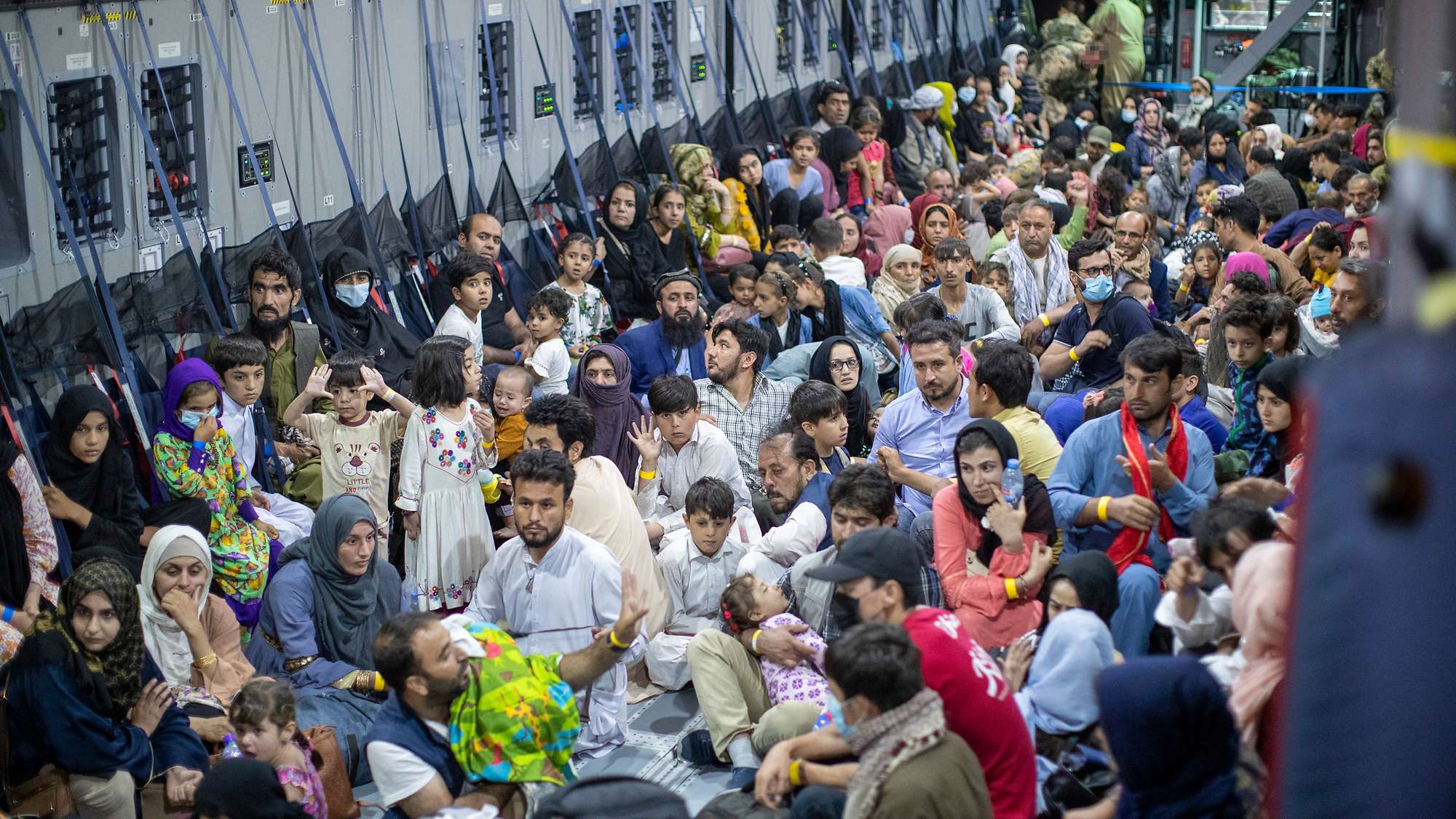
Thursday 26 August was going to be the last German flight into Kabul and up until that point the Bundeswehr had safely evacuated around 5,000 people, including more than 3,600 Afghans.
The day was going as planned, but following a devastating terrorist attack that killed 170 civilians and 13 US soldiers, everything changed.
Flt Lt Jenkins was keen to help, but his job was to fly the medevac aircraft, and as no German or British personnel had been injured they headed back to base.
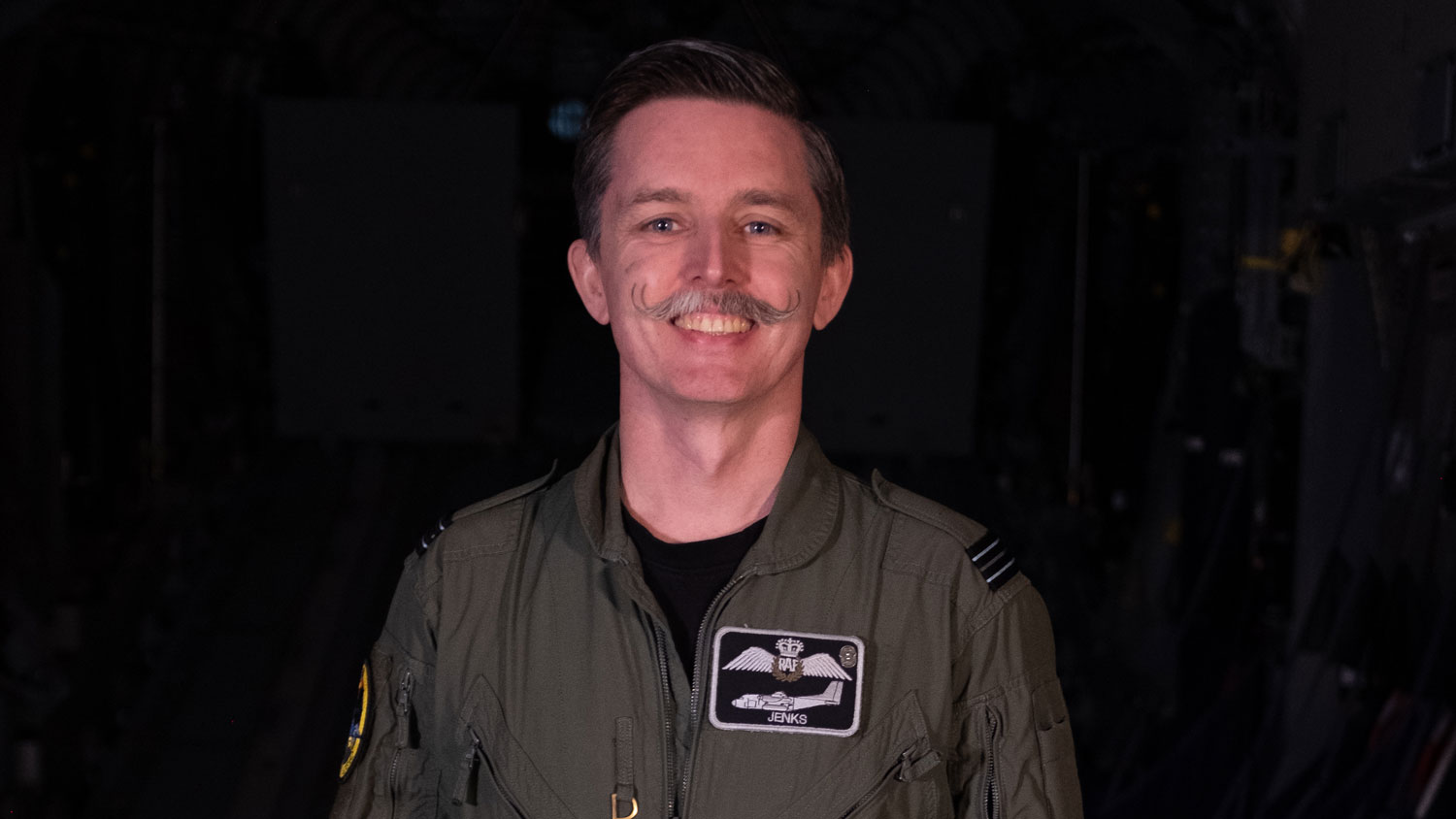
Meanwhile, on the ground, Master Sergeant Stephan, a logistics manager with the German army's 1st Airmobile Brigade, had been loading the last German aircraft.
However, the chaos of the terror attack led to him and one other soldier not boarding the final German aircraft leaving Kabul.
He said: "I said f*** because my taxi home had flown way. You're in a foreign land and you have nothing on you."
Flt Lt Jenkins received a call informing him that two German soldiers had been left in Kabul and needed to be rescued.
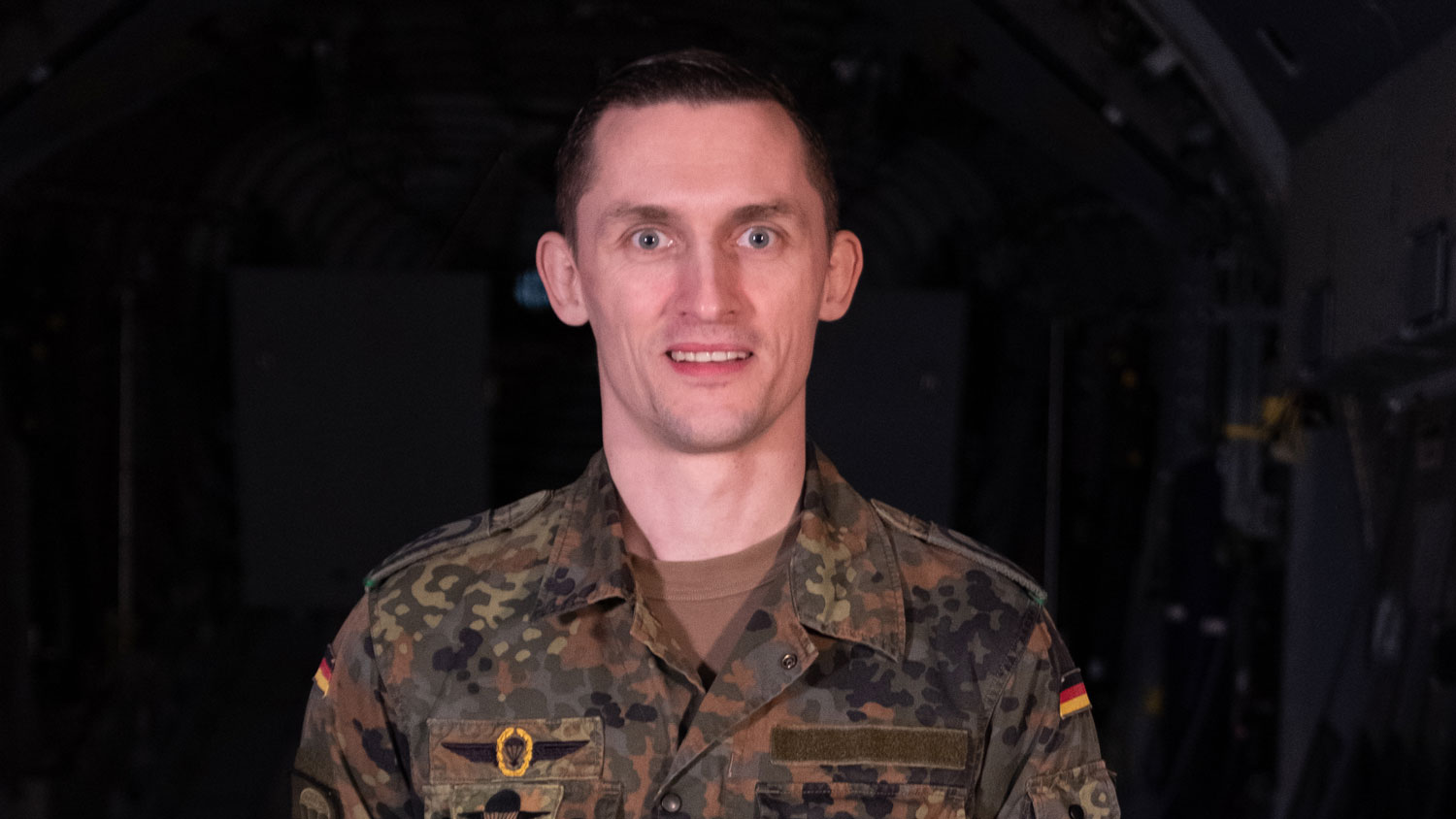
The pilot was used to having an air mobility protection team with him, but that day he only had the aircrew, 12 medics and two military police officers.
Without night vision goggles, Flt Lt Jenkins faced landing in an unlit airfield with an aircraft that didn't have the right equipment to allow his team to rescue the German soldiers safely.
He said: "It was a little bit more risky than normal, but we just absolutely didn't want to leave those two guys on the ground any longer.
"There was never any doubt that we were going to go and do that, and the whole crew were behind me."
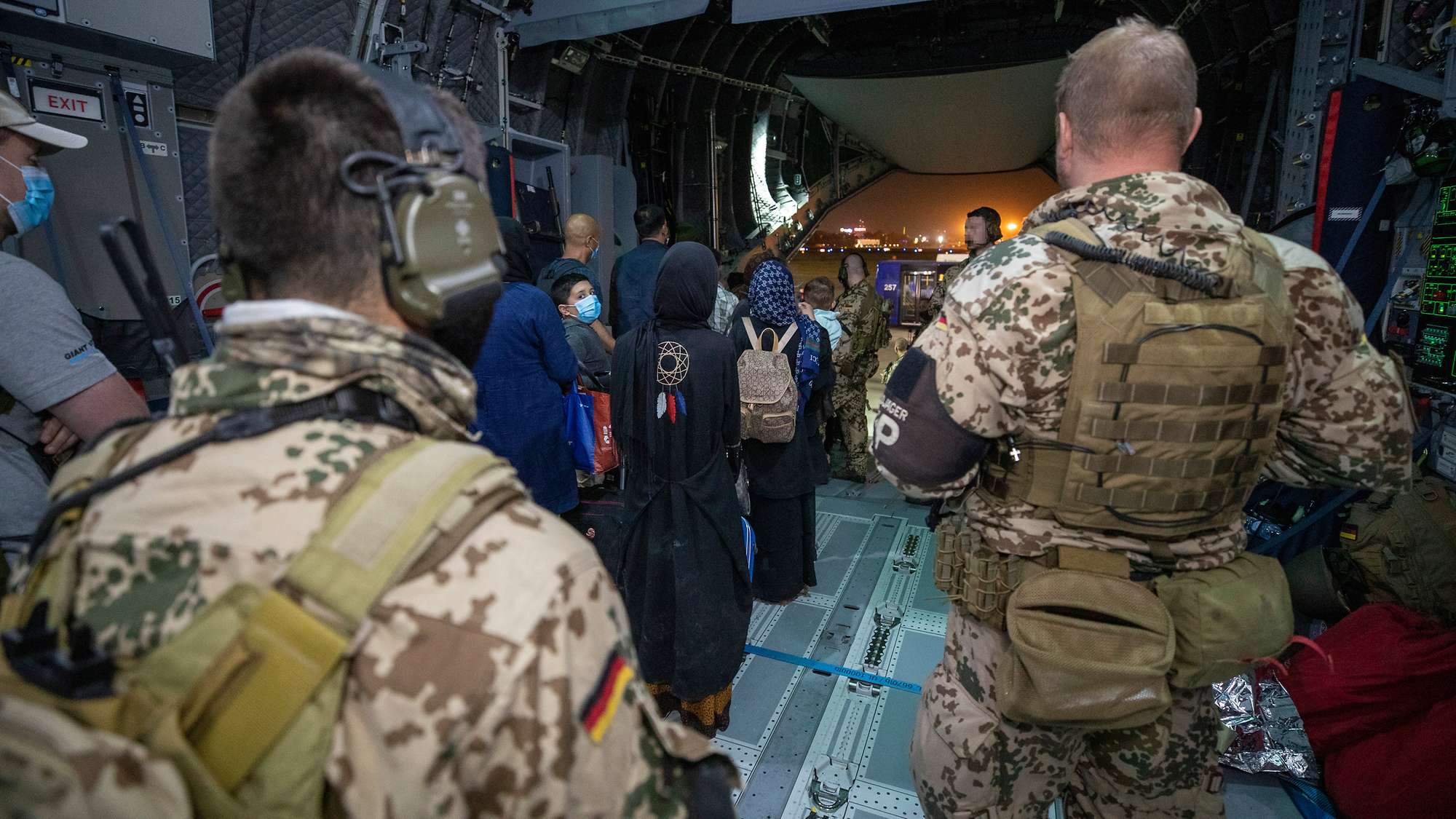
One of the crew members was a maintenance technician known only as Lars.
He said: "You could see the lights of Kabul, but the airport was just a pitch-black dark spot in the city. So yeah, it was crazy.
"I sat on the third seat in the cockpit, so basically behind the pilots and we didn't have night vision goggles with us and for me it looked like we flew into a dark black wall."
Upon landing, the crew noticed a light flashing from outside into the cockpit – the German soldiers were letting their rescuers know they were approaching.
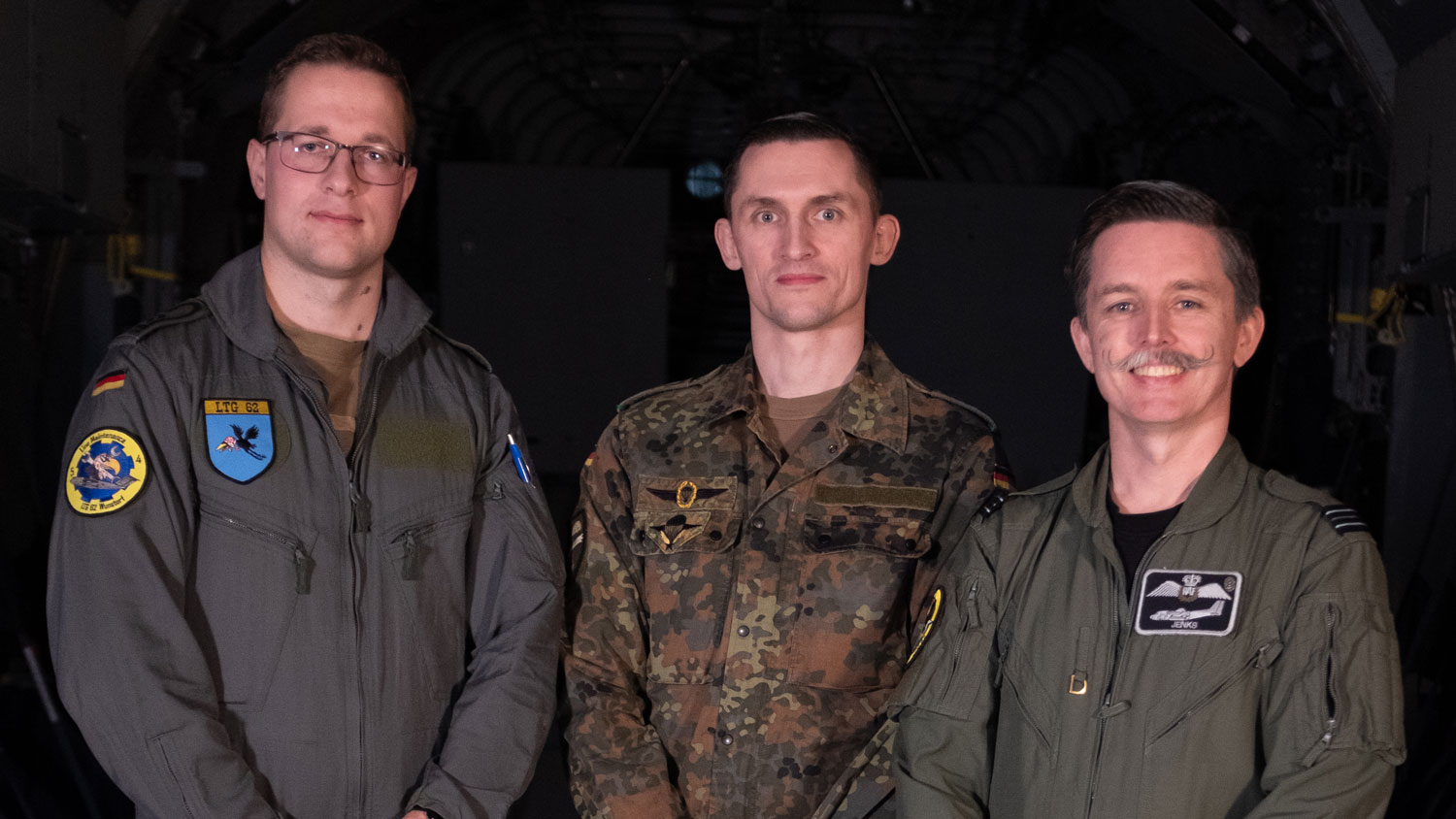
Carrying heavy equipment, the men finally made it on board.
Once airborne, the two Germans were offered a beer and invited to sit in the cockpit for the journey back to the Forward Operating Base at Tashkent, the capital of Uzbekistan.
MSgt Stephan said: "We got the chance to fly with the aircraft in the cockpit and we saw that Flt Lt Mark was not a German pilot.
"It makes no difference if it's a German pilot or a British pilot or someone else."
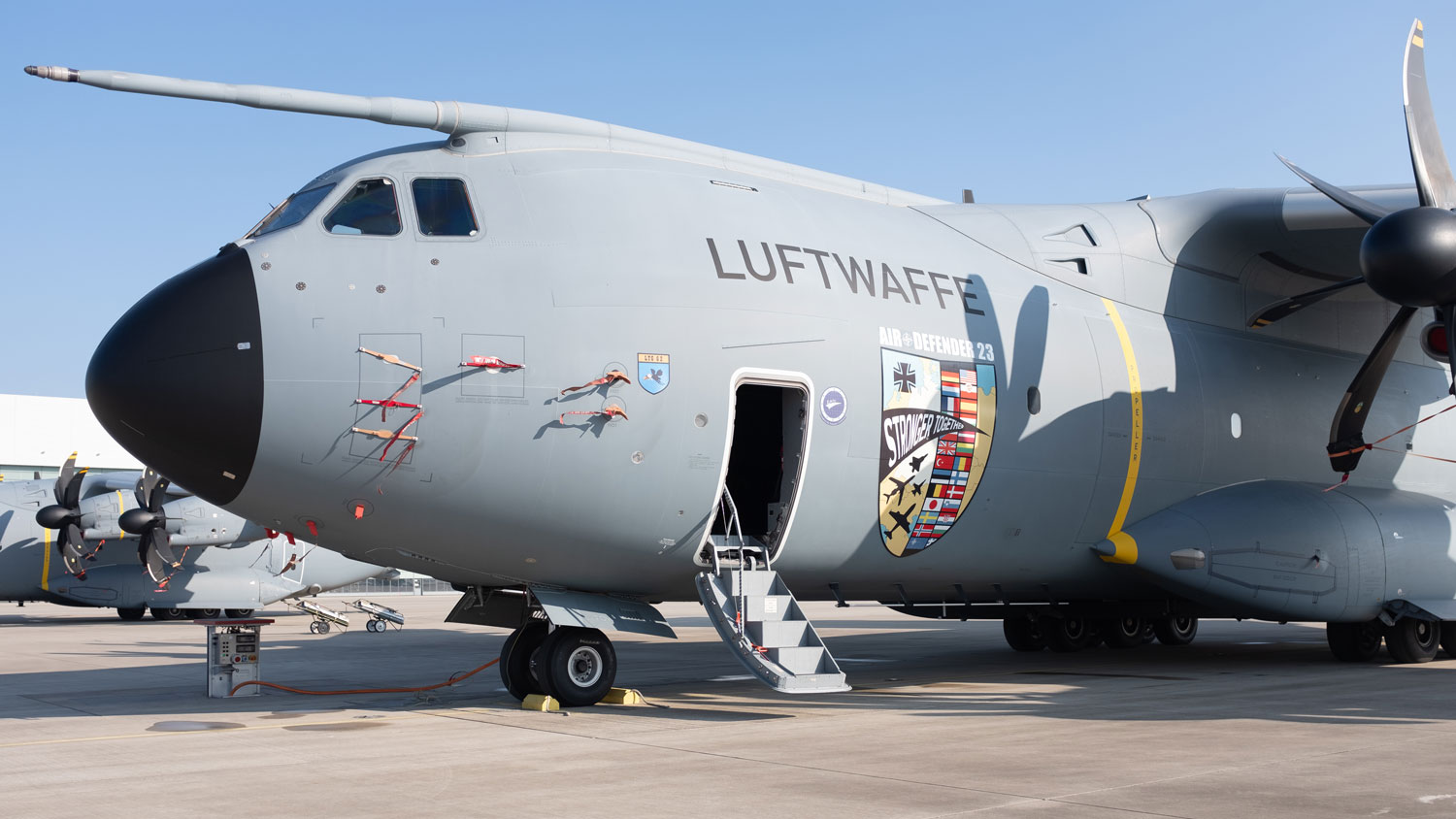
Flt Lt Jenkins said: "Obviously they'd come in and seen a Union Jack on my right shoulder and then asked what's going on, why is there a Brit there? It was a friendly, funny thing."
It was thanks to the Nato alliance that any of this could happen.
Flt Lt Jenkins said: "You hear stories of things other people have done and you wonder 'well, if I were in that situation, how would I react?'.
"And I've now seen that, I've answered that question and I'm really proud of what we did and how it worked out and how we worked together as a team.
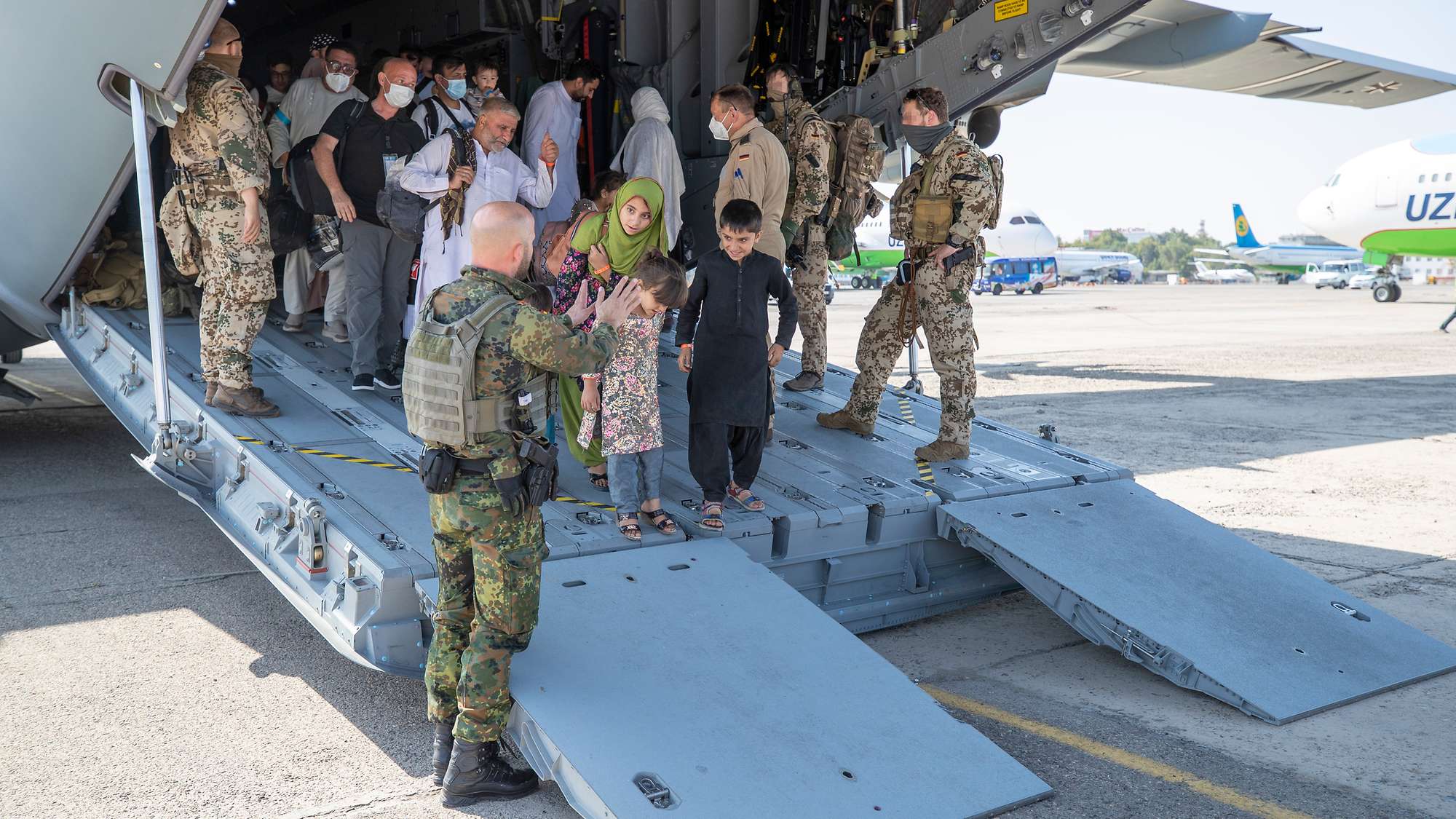
"The fact that I can be, as an RAF officer, the captain of a German aircraft that can go and do something like that and actually really make a difference."
In recognition of his efforts in the courageous Afghan airlift, the senior leadership team of the Luftwaffe sent a letter of appreciation directly to the Chief of the Air Staff of the RAF.
Flt Lt Jenkins was also awarded the German Campaign Medal for this operation, making him the only non-German serving person to be honoured in this way.
There's another chance to listen to BFBS Radio's Nato 75: An Alliance Rescue on Sunday 14 April at 12:30 UKT.









